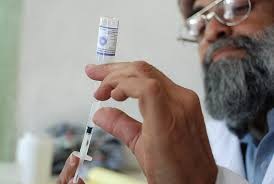What is health economics?
 Health Economics is a functional/applied field of study that allows systematic study of problems faced in promoting health for all. By applying economic theories of consumer, producer and social choice, health economics aims to understand the behavior of individuals, health care providers, public and private organizations, and governments in decision-making.
Health Economics is a functional/applied field of study that allows systematic study of problems faced in promoting health for all. By applying economic theories of consumer, producer and social choice, health economics aims to understand the behavior of individuals, health care providers, public and private organizations, and governments in decision-making.
From a Public Health point of view, health economics is just one of many disciplines that may be used to analyze issues of health and health care, in particular as one of the set of diagnostic methods labeled health services research. But from an economics point of view, health economics is simply one of many topics to which economic principles and methods can be applied. So, in describing the principles of health economics, we are really setting out the principles of economics and how they might be interpreted in the context of health and health care.
The key factor of economics is that resources are known to be limited in quantity, and demand is not known. This fundamental is known as the problem of scarcity of resources which means that choices must be made about what goods are produced, how they are to be produced and who will consume them. Another way to view this economic fact is that we cannot have all of the goods that we want; and in choosing the basket of goods that we will have, we have to trade off one good for another.
The consumer chooses the right good or service from some limited and some unlimited sources; this observation leads directly to an important and fundamental economics concept, which is called opportunity cost. If scarce resources are used to produce a good or service, those resources cannot be used to produce other goods or services. Opportunity cost derives from the benefits that are forgone by not producing those other goods. Because there are many possible uses for resources, the opportunity cost of using resources in a particular way is defined as the benefits that would have resulted from their best alternative use.
Thus health economics aims at answering questions such as:
- To what extent can life and health be subjected to economic analysis?
- Should public policy aim to improve health, or go further into general well-being?
- Is efficiency more important than fairness?
 A market brings together the demand for goods from consumers and the supply of those goods from suppliers. Consumers and suppliers base their buying and selling on the price that they have to pay or will receive. Price therefore acts as a signal to both groups as to what they should do in the market. Consumers will want to buy more if the price is lower, but suppliers will want to sell more if the price is higher. In case of healthcare, the consumers (patients) accept the diagnosis provided by doctors, understands their explanation of the disease process, follow the prognosis as advised by their doctor, and ultimately follows doctor’s recommendations. Thus doctor plays a vital role in healthcare business. I would say the healthcare economics revolves around the doctor.
A market brings together the demand for goods from consumers and the supply of those goods from suppliers. Consumers and suppliers base their buying and selling on the price that they have to pay or will receive. Price therefore acts as a signal to both groups as to what they should do in the market. Consumers will want to buy more if the price is lower, but suppliers will want to sell more if the price is higher. In case of healthcare, the consumers (patients) accept the diagnosis provided by doctors, understands their explanation of the disease process, follow the prognosis as advised by their doctor, and ultimately follows doctor’s recommendations. Thus doctor plays a vital role in healthcare business. I would say the healthcare economics revolves around the doctor.
This is where there is a need to recognize that health care has special characteristics that may make it different from other products. One factor is that health care is not usually demanded because it is in itself obligatory; in fact it may be unpleasant. But it was, is and will be in demand mainly to improve health. If health care is only demanded in order to improve health, then is there a scope for improvements in the system? Yes. Because health can indeed be regarded as a good, in fact it is a fundamental commodity that is essential to people’s well-being which has scope for improvements in it forever. Health does have characteristics than more conventional goods have.
In our country healthcare facilities are still scarce. As we go in the interiors, the healthcare services are pathetic. According to a report of McKinsey, India at present just six doctors are available every 1000 patients. Imagine how scarce the medical service is for poor people in India.
As a good, health care is less tangible than most other goods. It cannot be traded and it cannot be passed from one person to another (although obviously some diseases can.)
In the context of ordinary goods and services, economics distinguishes between a want which is the desire to consume something, and effective demand, which is a want backed up by the willingness and ability to pay for it. It leads to effective demand that is the determinant of resource allocation in market, rather than wants. But in the context of health care, the issue is more complicated than this, because many people believe that what matters in health care is not wants or demands, but is a need. Health economists generally interpret a health care need as the capacity to benefit from it. Not all wants are needs and not all needs are wants.
The conclusion from this is that the demand for health care can be analyzed as if it were any good or service, but it has peculiarities that may mean that the usual assumptions about the resource allocation effects of markets do not hold. Moreover, it may well be understood that people wish resource allocation to be based on the demand for health or the need for health care, neither of which can be provided in a conventional market.
Health economics as a branch of education provides useful insights into how health care solve major issues on macro as well as well as micro level, it can be organized and financed and it provides a framework to address a broad range of issues.













































